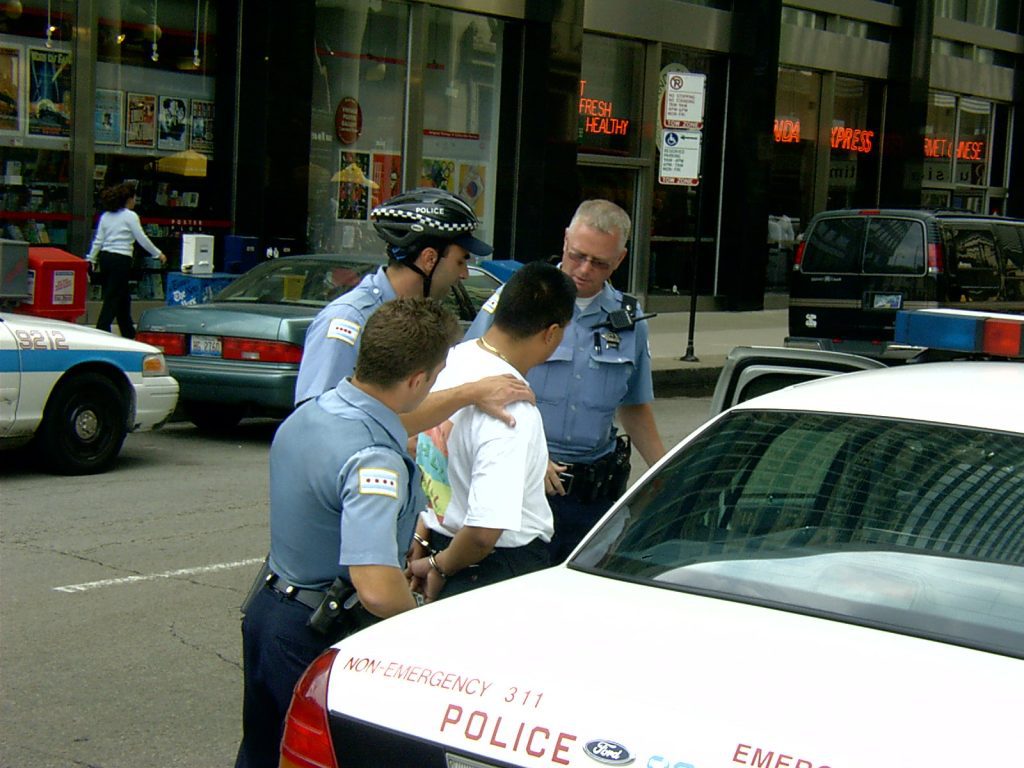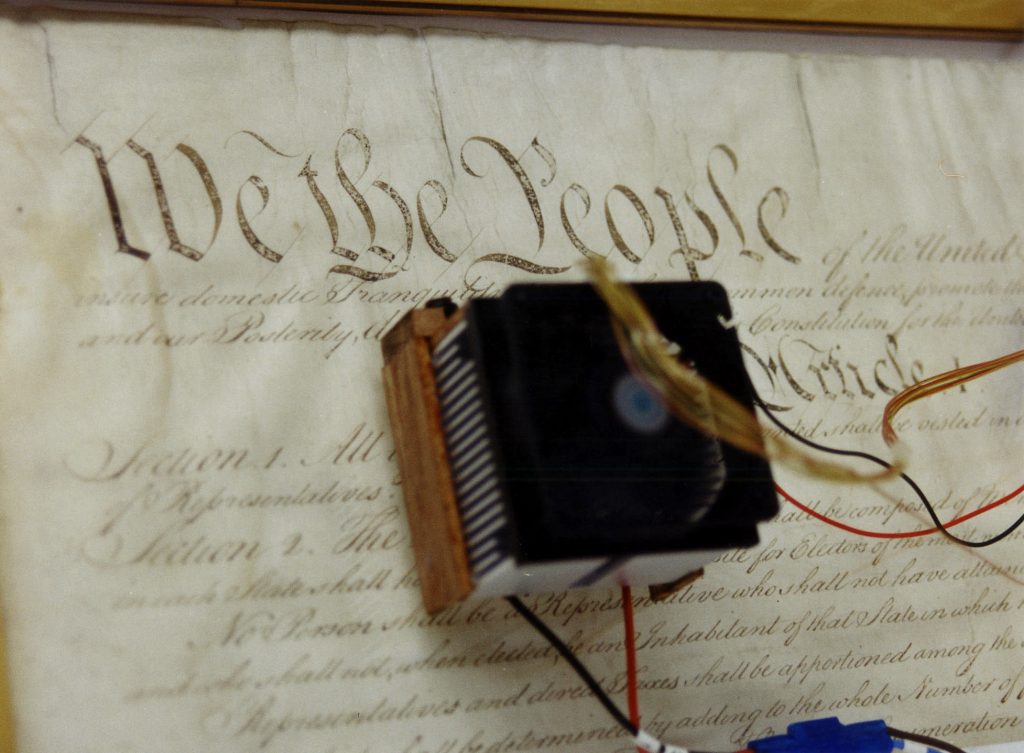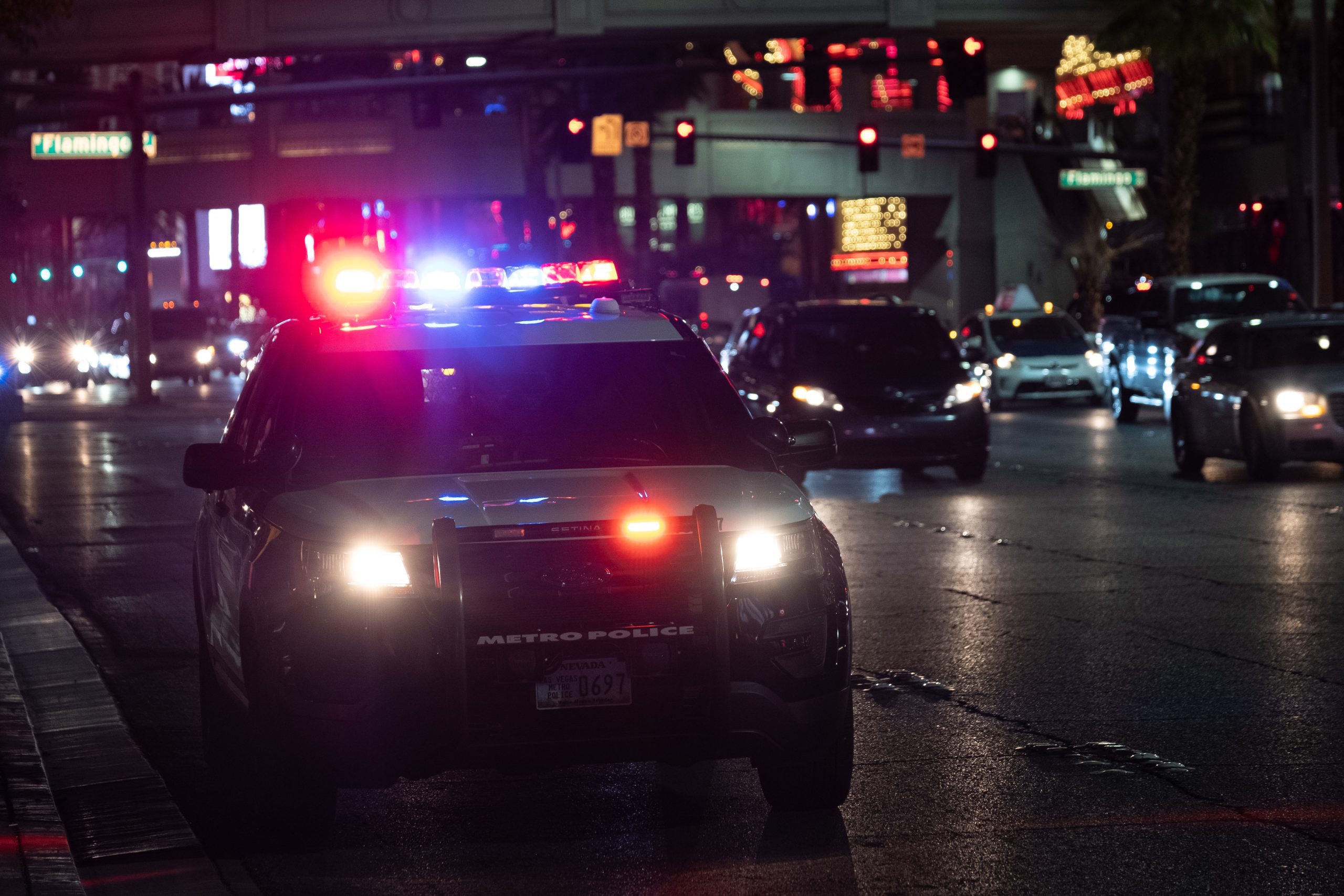The Fifth Amendment has protections for when police have arrested someone. It states, in full, as follows:
No person shall be held to answer for a capital, or otherwise infamous crime, unless on a presentment or indictment of a Grand Jury, except in cases arising in the land or naval forces, or in the Militia, when in actual service in time of War or public danger; nor shall any person be subject for the same offence to be twice put in jeopardy of life or limb; nor shall be compelled in any criminal case to be a witness against himself, nor be deprived of life, liberty, or property, without due process of law; nor shall private property be taken for public use, without just compensation.
Many of these protections apply once you face criminal charges. For example, the Fifth Amendment prohibits the government for putting someone “in jeopardy of life or limb” “for the same offense twice….”
Courts call this the double-jeopardy clause. It stops prosecutors from charging you with the same crime twice. So, imagine you already faced charges for something. If you did, the government can’t charge you for that same thing again.
The Fifth Amendment also has the due-process clause. Under this clause, government officials can’t take your life, liberty or property without giving you due process. This means that the government must give you a fair hearing. This applies in criminal cases. If the government wants to lock you up, they must give you due process first.

Does the Fifth Amendment apply during arrests?
Yes. The examples above apply in court proceedings. They don’t often apply during arrests. But other parts of the Fifth Amendment do. One of those is the Fifth Amendment’s “Self-Incrimination Clause.” This Fifth Amendment protection applies both before and during court. And it’s very important for arrests.
Under the Self-Incrimination Clause, you cannot “be compelled in any criminal case to be a witness against himself” (or herself). This means that the government can’t force you to say something they can use against you.
Once police arrest you, they must tell you that anything you that the government can use anything you say against you. This warning is part of your Miranda rights. And, if you make a statement or even confess without Miranda warnings, the Fifth Amendment applies.
What happens if government officials violate your Fifth Amendment rights?
If police violate your Fifth Amendment rights, there are consequences. First, prosecutors can’t use any statements you make in court if they got them in violation of the Self-Incrimination Clause and your Miranda rights.
Like with Fourth Amendment violations, Fifth Amendment violations result in the “suppression” of evidence. This means that courts won’t allow prosecutors to use it at trial. In turn, the jury won’t hear your statements. So, if you confessed, for example, the jury may never know. This could make a huge difference in your case.
And if police arrested you and violated your Fifth Amendment rights, you can also file a “Bivens action.” The term Bivens action comes from a U.S. Supreme Court case called Bivens v. Six Unknown Named Agents of Federal Bureau of Narcotics. If you win, you might get money damages, too.
As the American Bar Association has explained, the Supreme Court has since expanded Bivens actions to Fifth Amendment violations, too. But recent decisions from the Supreme Court make it sound like it might backtrack on Bivens actions soon.

The Takeaway:
The Fifth Amendment stops government officials from forcing you to confess to a crime. The Fifth Amendment protections apply when police have arrested you. If police violate your Fifth Amendment rights, prosecutors can’t use the evidence they get. You may also file a Bivens action against the police. But the Supreme Court might limit your ability to do so soon.






